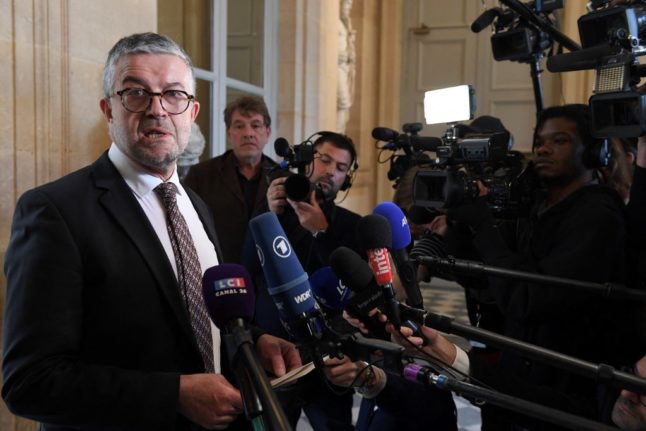The situation presents Macron, who has only made occasional public comments on the matter, with one of his biggest challenges less than one year into his second and final mandate.
READ MORE: ‘Two fingers to the French people’ – what the papers said about Macron’s pension decision
Prime Minister Elisabeth Borne on Thursday invoked article 49.3 of the constitution to impose the pension overhaul by decree, sparking angry demonstrations nationwide that saw 300 people arrested, according to the interior ministry.
French opposition lawmakers on Friday retaliated by filing the motion of no-confidence in the government, hoping to repeal the deeply unpopular law to hike the retirement age from 62 to 64.
“The vote on this motion will allow us to get out on top of a deep political crisis,” said lawmaker Bertrand Pancher, whose motion was signed by independents and members of the broad left-wing NUPES coalition.
READ MORE: Calendar: The latest French pension strike dates to remember
The far-right National Rally (RN) filed a second motion, but that was expected to get less backing.
RN lawmaker Laure Lavalette however said her party would vote for “all” no-confidence motions filed.
“What counts is scuppering this unfair reform bill,” she said.
Borne’s cabinet is largely expected to survive any vote, thanks to backing from the opposition right-wing Republicans, despite an increasingly febrile political situation.



 Please whitelist us to continue reading.
Please whitelist us to continue reading.
Member comments